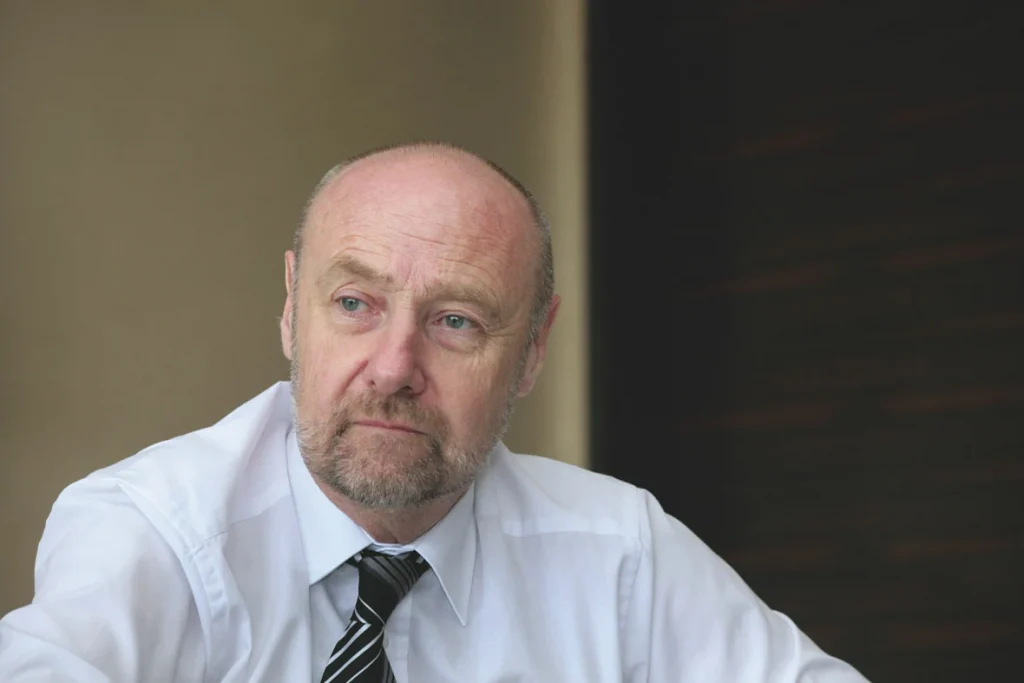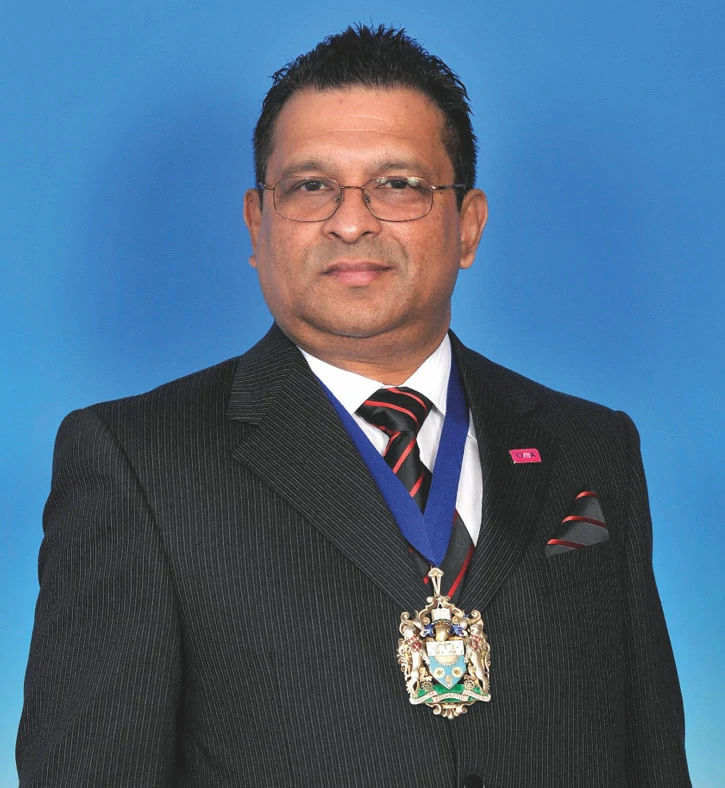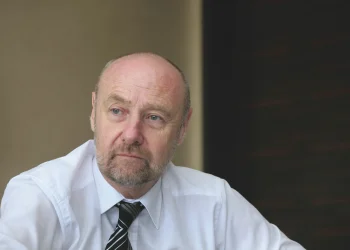
Glynn Lowth, FCMA – Former President CIMA
The Former President of CIMA, Glynn Lowth (FCMA) was in Sri Lanka recently in conjunction with the 90th Anniversary of the Chartered Institute of Management Accountants (CIMA). During his tenure as the President of the globally recognised professional management accounting qualification, he has strived to expand the reach of CIMA internationally. Touching on the importance of the skills and expertise of CIMA graduates in the changing global and local economic environment, adaptive features of the CIMA curriculum and the importance of Sri Lanka in the future developments of the global giant, Glynn Lowth shared his views with Business Today.
By Nishani Perera
Photography by Menaka Aravinda
Chartered Institute of Management Accountants has reached the landmark of 90 years. What in your opinion, stands out as the most significant achievement of the Institute over the years?
The Institute was formed in 1919 in response to requirements, which came out of the World War I. The main requirements were that, it was necessary to bring scientific discipline into the area of costing, as at the time there was a shortage of skilled labour and shortages of material. The Institute was formed because it was the need at the time. The importance of the Institute is acute today, as we are in the middle of a global recession. The Institute’s members and the skills of the members are actually now in demand in the same way that they were 90 years ago. Members are equipped with those skills that will add value to their organisations and help organisations to come out of the recession. When the recession does end, organisations can take advantage of the skills of our members and the new opportunities that arise will make their companies and the world economy bigger and better.
CIMA is considered the global passport to employment. Can you elaborate on this?
We have 76,000 members and 91,000 students who are recognised and respected in many countries. Our students and members work in 165 countries around the world which speaks of the global recognition of the qualification. We have been constantly building new partnerships to further our recognition in various parts of the world and have signed mutual recognition agreements with organisations in a number of countries. For example, late last year I was honoured to sign a MRA, mutual recognition agreement, with CIMA Canada; it was a renewal of the previous agreement. We also signed a new agreement with the Certified Practicing Accountants in Australia. Through these agreements now, we have reciprocal arrangements whereby the members of each body who are suitably qualified in terms of having practical experience can become members of CIMA or vice versa. For example, our members in Sri Lanka can move to Canada or to Australia and apply for the local qualification, which will help in securing better employment opportunities. These arrangements in different parts of the world along similar lines, make us a global passport for employment.
With high demands every year, how does CIMA maintain its high standards?
We ensure that our members go through a good and a formal CPD process (CIMA Professional Development). Every member regardless of their occupation has to confirm that they have undertaken CPD that is relevant to their jobs. It is a very flexible system. If the individual is a General Manager of a company, then the CPD is relevant to the General Manager’s role; if they are Financial Accountants or Management Accountants, their CPD is relevant to their jobs. In that way, we make sure that our members are continuously updated. Therefore, when you employ a CIMA graduate, you employ somebody whom you know is up to date.
Another aspect is our syllabus. Based on research, our syllabus is changed once in five years to suit market requirements. This is another way of ensuring that employers receive value for their money from CIMA recruitments.
How does CIMA adapt its members to meet the prevailing challenges?
We adapt our education process with the environment of that time encompassing experiences from the real life experiences attained by members, students and employers. All employers and students are affected by what’s happening in the world economy and have given us feedback on what they expect to be included in the curriculum. In fact in May 2010, we will be launching a new syllabus which has been built taking into account changes in the current business environment. Our syllabus is continuously changing. We ensure that our members understand what skills are required and what they need to do to help their companies through the recession. For example, we will be advocating amidst our members the importance of ethics in business and understanding of associated risks within a business. In that respect, both these aspects have perhaps been in short supply in various parts of the world economy last year. We also need to make sure that our members have the technical skills in terms of analysing company results, forecasts and operations so that they can advise management on how to secure the future of these companies. Therefore, in a whole range of different ways, we, the Chartered Institute of Management Accountants are building new information and reactions to the current situation through the training and education of our students and the development of our members.
Examples from the recent times show that the downfall of many a company has resulted from malpractice. Some even point the finger at Company Accountants at such instances. What is your comment on this?
I think CIMA members are very valuable in the whole situation. Contrary to being responsible, our members actually have a good understanding of risks. In reality, our members should be owning the risk and monitoring the process within organisations. The attitude to risk has been one of the main issues that have created many problems. Our members have the ability to monitor risk and to advise companies and Company Managers on how risk can be mitigated, reduced and maybe avoided. Every company needs risks. No one would progress if they did not take risks and develop. However there is the question of understanding risk and how that risk is going to affect the company. Accountants have a very good ability to do that because they see the overall cash flows and then they see the financial operations of the company. That’s a reflection of the entire operation of the company. Therefore, Accountants are in a position to play a vital role in the whole process. There are certain areas in the world of finance in which people may not have understood the financial products they possess. Particularly in some areas, not necessarily in this part of the world but certainly some of the larger multi national banks for instance, where they have had financial products, which have not necessarily suited the market. They have been selling or they have been taking risks that have not been adequately acknowledged. Therefore Accountants cannot be directly blamed any more than anybody else in this situation. Accountants have a good role to play in making sure that they have an understanding of what to do right in the future.
How did you become involved with CIMA and could you tell us about your journey since then?
I became a member of CIMA in 1977 and became actively involved back in England, responding to a request by CIMA Head Office for young CIMA members, to explain the benefits of CIMA membership to school children who were studying for their examination. That was in 1981.
Eventually I joined the local branch committee and then later, the Institute Committee in London. Thereafter I joined the CIMA General Council. After a few years, I was nominated to become the President. I was the President for 12 months and I must say that during my term of office I had a tremendously exciting time. During my business career, I worked for a major retailer in the UK, Boots Group. I have also worked in the pharmaceutical industry for a company called KNOLL and I was also at BASF, which is a German chemical company. Throughout my career, I have played a variety of commercial and financial roles. My last appointment was as a General Manager responsible for IT Services in Northern Europe and Scandinavia. In actual fact, I have been in the roles of a Front Line Accountant, a General Manager and financially qualified Business Manager. I found that tremendously helpful in my career. I was able to appreciate very much the financial and management impacts in some of the decisions that we were making. I was able to bring in certain expertise into some of the negotiations with customers on prices. That is my career in a nutshell.
What challenges have you encountered as the President of CIMA and how did you overcome them?
I think the biggest challenge was fitting all the responsibilities as the CIMA President to only seven days of a week and trying to achieve these within a short span of time. How we overcame the challenges was through sheer hard work and concentrating on achieving what needed to be done. We have succeeded in almost all our goals during the year.
What new changes have you brought in?
The year has been one where we have had many new developments. I have been very keen to expand the geographical reach of CIMA. I am very excited about some of the things that we are doing around the world. Agreements are signed in Australia and in Canada and we signed agreements in other places that we have projects, which are yet to be commissioned. I believe that this year, we have achieved greater international presence.
I have travelled to many places during the year. For example, recently I was in China and signed agreements with Chinese universities. I met a few senior politicians and hence we have been developing our relations with China. In such ways during the year, a great deal of work has been done in the international front.
What do you think is the reason behind the success of CIMA in Sri Lanka, making it the second largest CIMA presence in the world?
I think in Sri Lanka there are several reasons why CIMA is successful. First of all, the Sri Lankan people are very energetic, they wish to learn and they wish to traverse the world carrying the knowledge with them. We have 13,000 students in Sri Lanka. Many of those will commit to membership and some may travel to other parts of the world. I think it is a Sri Lankan trait to want to gain a qualification and to move to see the rest of the world and be energetic in the field of business.
Having that in mind our Sri Lankan membership is very important. Further we also find the support of the Government and the business institutes in Sri Lanka, a very important factor. The country has a well-developed education system, which actually provides us many qualified recruits in to the student base. The quality of the tuition available advances students as they qualify. These are the reasons that make CIMA successful in Sri Lanka.
In your opinion, what could be done to further improve CIMA in Sri Lanka?
We would expect to see, as time goes by, more members, students and more employers in Sri Lanka. We already have a good response in the number of students and employers in Sri Lanka and I would like to see those numbers develop. Sri Lanka is perfectly placed to become the point from which we can manage the CIMA experience across the region. We could use the expertise that we have in CIMA Sri Lanka, globally and certainly more regionally.
A three decades old war has come to an end in this country, how do you propose that CIMA adapt to the changing environment in Sri Lanka?
The end of the war can do nothing but good to the economy of Sri Lanka. As a professional body, we can contribute towards a healthy economy. Clearly we have a role to play. It will enable us to focus on some of those geographical areas of Sri Lanka that we have not been able to focus on. Indeed we now see developments in some of the areas in the North of Sri Lanka that previously we have not been able to reach. We will be able to bring the skills of CIMA through recruiting students and through having members in more geographical areas. Now, since the overall situation in the country is much more stable, business opportunities in the North and East of the country will grow.
What do you think is the way forward for CIMA?
The way forward for CIMA is to expand better around the world. We are already a very well recognised organisation globally. In some places, we have more members working in the public sector than many of our competitors. There will always be more geographical areas that we can aim for and there will always be more organisations to which we can expand and develop. Therefore, I look forward to see CIMA presence stronger not only in the businesses in the private sector areas but also in the areas of the public sector as well.
Finally, I would like to add that when I travel to the various parts of the world, the number of our members who are in these places and the energy and enthusiasm with which they support their organisations has impressed me. I have been very impressed by the tuition providers who provide the tuition to our members and also by the people who are not involved directly in CIMA such as employers who are very positive about CIMA. It has been very gratifying to see so many people having a positive attitude about the organisation that I have been involved in for so many years. This has been a very satisfying experience.





